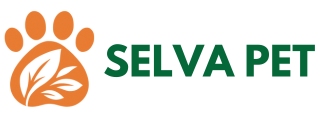Vaccination Schedule for Puppies: Dogs and Cats is super important for your pets’ health. If you’re a proud pet parent, you know how much you want to keep your furry friends safe and happy. This article will help you understand everything you need about vaccinations, from the key shots your puppy or kitten must get to common myths surrounding them. You’ll learn why these vaccines matter and how to keep track of your pet’s health. Let’s dive into the world of vaccinations and make sure your pups and kittens are well protected!
Understanding the Vaccination Schedule for Puppies: Dogs and Cats
When it comes to our furry friends, understanding the vaccination schedule for puppies and kittens is crucial. As a pet owner, I can’t stress enough how important it is to keep track of these vaccines. They help protect our pets from various diseases that can be severe or even fatal. Trust me, I’ve seen first-hand how devastating it can be when pets aren’t properly vaccinated.
Vaccination schedules can differ based on the pet’s age, health status, and local regulations. For instance, puppies usually start their vaccinations at around six to eight weeks of age. From there, they’ll receive a series of shots until they’re about four months old. Kittens follow a similar timeline. Understanding this schedule can help you ensure that your pet stays healthy and happy.
Why Vaccinations Matter: The Importance of Pet Health
So, why do vaccinations matter so much? Well, think of it this way: vaccines are like a shield for our pets. They protect them from dangerous diseases like parvovirus in dogs or feline leukemia in cats. I remember when I adopted my first puppy; I was overwhelmed with information. But learning about the importance of vaccinations made me feel more confident in my ability to care for him.
Vaccines work by stimulating the immune system. When a vaccine is administered, it introduces a harmless version of a virus or bacteria. This prompts the body to create antibodies, which remain in the system and help fight off the actual disease if the pet is exposed later. This is why keeping up with the vaccination schedule for puppies: dogs and cats is essential. It not only protects your pet but also contributes to the overall health of the pet community.
Moreover, some diseases can be transmitted to humans. By vaccinating our pets, we’re also protecting ourselves and our families. This interconnectedness is something I’ve come to appreciate as a pet owner. It’s a shared responsibility and one that we should take seriously.
Puppy Vaccination Schedule: Key Shots You Can’t Miss
Now, let’s dive into the specifics of the puppy vaccination schedule. There are several key shots that you absolutely cannot miss. The first set of vaccinations typically includes:
- DHP (Distemper, Hepatitis, Parvovirus): This combination vaccine protects against three serious diseases.
- Bordetella: Often referred to as kennel cough, this vaccine is especially important if your puppy will be around other dogs.
- Rabies: This is a critical vaccine that is often required by law, and it protects against a deadly virus.
Puppies usually receive their first vaccinations at six to eight weeks old. They’ll continue to get booster shots every three to four weeks until they’re about 16 weeks old. I remember scheduling these appointments like they were my own doctor visits! It felt like a lot, but it was worth it to see my puppy thriving.
Cat Vaccination Schedule: Keeping Your Feline Friends Safe
Just like puppies, kittens also have a vaccination schedule that’s vital for their health. The core vaccines for kittens include:
- FVRCP (Feline Viral Rhinotracheitis, Calicivirus, Panleukopenia): This combination vaccine protects against three significant feline diseases.
- Rabies: Similar to dogs, this vaccine is crucial for the safety of both cats and humans.
Kittens typically start their vaccinations around eight weeks of age. They’ll receive booster shots every three to four weeks until they’re about 16 weeks old. I remember how nervous I was taking my kitten for her first shots. But the vet was so reassuring, explaining everything step by step, which made me feel much better.
Core Vaccines for Dogs: What Every Puppy Needs
Let’s break down the core vaccines every puppy needs. These vaccines are essential for preventing common and severe diseases. Here’s a closer look:
- Distemper: A highly contagious virus that affects a puppy’s respiratory, gastrointestinal, and nervous systems.
- Hepatitis: This virus affects the liver and can be fatal.
- Parvovirus: A severe gastrointestinal disease that can be deadly, especially in young puppies.
- Parainfluenza: A virus that can cause respiratory infections.
These core vaccines are typically administered in combination shots, making it easier for pet owners to keep track. It’s crucial to follow the vaccination schedule for puppies: dogs and cats closely to ensure your puppy receives all necessary doses. I’ve seen too many puppies suffer from diseases that could have been prevented with proper vaccinations.
Non-Core Vaccines for Cats: Extra Protection for Your Kittens
In addition to core vaccines, there are non-core vaccines that can provide extra protection for your kittens. Here are a few to consider:
- Feline Leukemia Virus (FeLV): This vaccine is particularly important for kittens who will be outside or around other cats.
- Feline Immunodeficiency Virus (FIV): Another vaccine for cats at risk of exposure to FIV.
Non-core vaccines are usually recommended based on your cat’s lifestyle and risk factors. I always consult with my veterinarian to determine which vaccines are necessary for my pets. It’s a personalized approach that gives me peace of mind.
Puppy Immunization Guide: Your Step-by-Step Plan
Creating a step-by-step immunization guide for your puppy can help keep you organized. Here’s a simple outline to follow:
- Start Early: Begin vaccinations at six to eight weeks.
- Schedule Regular Vet Visits: Plan appointments every three to four weeks until your puppy is 16 weeks old.
- Keep Records: Document each vaccine your puppy receives and the dates.
- Consult Your Vet: Always discuss any concerns or questions with your veterinarian.
By following this guide, you can ensure that your puppy receives all the necessary vaccinations on time. I’ve found that keeping a calendar or a dedicated notebook helps me stay on track. It’s a small effort for such a significant impact on my pet’s health.
Dog Vaccine Timeline: When to Get Each Shot
Here’s a timeline for when to get each shot for your puppy:
- 6-8 weeks: DHP, Bordetella
- 10-12 weeks: DHP, Bordetella (booster)
- 14-16 weeks: DHP, Bordetella (final booster), Rabies
This timeline is a general guideline, so it’s essential to consult your vet for personalized advice. I remember being so relieved when I got my puppy’s vaccination schedule mapped out. It made it easier to manage everything else in my life.
Vaccinations for Kittens: A Complete Overview
For kittens, here’s a complete overview of their vaccination schedule:
- 8 weeks: FVRCP
- 12 weeks: FVRCP (booster), Rabies
- 16 weeks: FVRCP (final booster)
Just like with puppies, it’s essential to follow this schedule closely. Kittens are vulnerable to various diseases, and vaccinations are the best way to keep them safe. I often think back to the first time I took my kitten for her shots; it was a learning experience for both of us!
Pet Vaccination Importance: Protecting Your Beloved Companions
The importance of pet vaccinations cannot be overstated. They protect not just your pet but also other animals and even humans. When I see my pets playing and thriving, I feel a sense of pride knowing that I’ve done my part in keeping them healthy.
Furthermore, vaccinations contribute to herd immunity. When a significant number of pets are vaccinated, it helps prevent the spread of diseases in the community. This is especially important for pets that cannot be vaccinated due to health issues. It’s a collective effort, and every pet owner plays a role.
Tips for Staying on Track with Your Vaccination Schedule
Staying on track with your pet’s vaccination schedule can be challenging, but here are some tips that have worked for me:
- Set Reminders: Use your phone or a calendar to remind you of upcoming appointments.
- Keep a Vaccination Book: Document each visit and vaccine received.
- Communicate with Your Vet: Don’t hesitate to ask questions or express concerns during visits.
- Stay Informed: Research and stay updated on vaccination guidelines.
By implementing these tips, you can ensure that your pet receives the necessary vaccinations on time. It’s all about creating a routine that works for you.
Common Myths About Vaccines for Puppies and Kittens
There are several common myths about vaccines that can cause confusion. Let’s debunk a few:
- Myth: Vaccines are unnecessary if the pet appears healthy. Fact: Many diseases can be asymptomatic until it’s too late. Vaccinations are a proactive measure.
- Myth: Vaccines can cause the disease they are meant to prevent. Fact: Vaccines contain killed or weakened pathogens that cannot cause disease.
- Myth: Only outdoor pets need vaccinations. Fact: Indoor pets can also be at risk for certain diseases.
Understanding these myths can help you make informed decisions about your pet’s health. I often find that educating myself on these topics has made me a more responsible pet owner.
Keeping Records: Tracking Your Pet’s Vaccination Schedule
Keeping accurate records of your pet’s vaccinations is essential. Here’s how I do it:
- Create a Vaccination Folder: Keep all vaccination certificates and records in one place.
- Use an App: There are several pet care apps available that can help you track vaccinations.
- Regularly Update: After each vet visit, ensure that you update your records promptly.
Having a well-organized vaccination record can save you time and stress in the long run. Plus, it’s a great way to keep track of your pet’s health history.
What to Expect After Vaccination: Puppy and Kitten Reactions
After vaccinations, it’s normal for pets to experience some mild reactions. Here’s what to expect:
- Mild Fever: This is a sign that the immune system is responding.
- Lethargy: Your pet may be a bit tired for a day or two.
- Soreness at Injection Site: This can cause some discomfort, but it usually resolves quickly.
If you notice anything concerning or if your pet seems excessively lethargic, don’t hesitate to contact your veterinarian. I always keep an eye on my pets after their vaccinations, just to be safe.
The Role of Your Veterinarian in the Vaccination Process
Your veterinarian plays a crucial role in the vaccination process. They can provide guidance on:
- Vaccination Schedules: Tailoring a schedule based on your pet’s health and lifestyle.
- Health Assessments: Ensuring your pet is healthy enough for vaccinations.
- Answering Questions: Addressing any concerns you may have about vaccines.
I’ve found that building a good relationship with my vet has made a significant difference in my pets’ health care. They’re a valuable resource, and I always leave their office feeling more informed and confident.
Final Thoughts on the Vaccination Schedule for Puppies: Dogs and Cats
In conclusion, understanding the vaccination schedule for puppies and kittens is essential for every pet owner. It’s a proactive step in ensuring the health and well-being of our beloved companions. By staying informed, keeping accurate records, and working closely with your veterinarian, you can provide your pets with the protection they need.
Remember, vaccinations are not just about individual health; they contribute to the overall health of the pet community. So, let’s take this responsibility seriously and give our pets the best chance at a long, healthy life.



